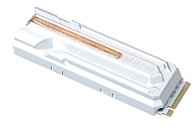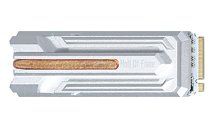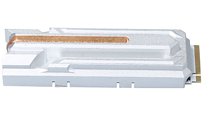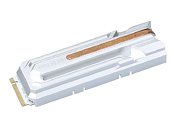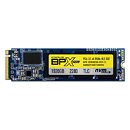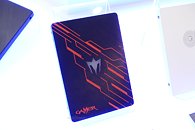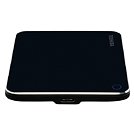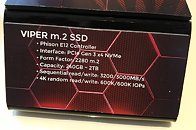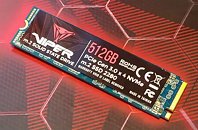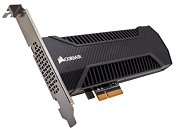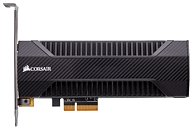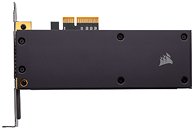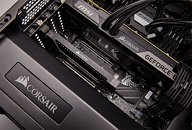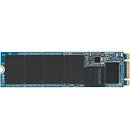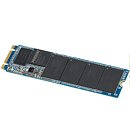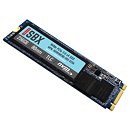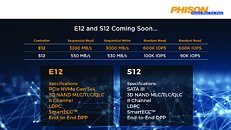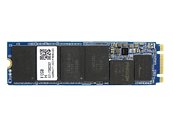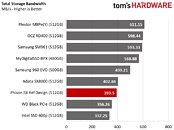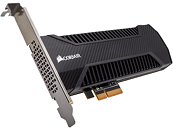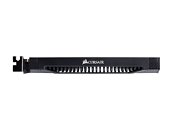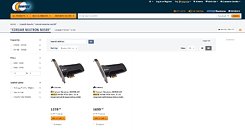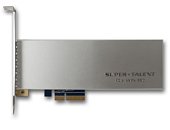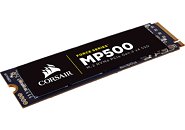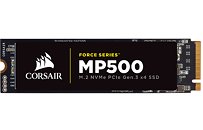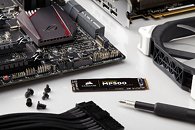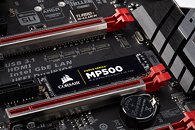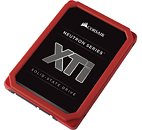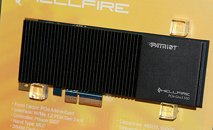
GIGABYTE Rolls Out AORUS RGB AIC NVMe SSD
GIGABYTE today rolled out the Aorus RGB AIC NVMe SSD series. Built in the full-height single-slot AIC form-factor with PCI-Express 3.0 x4 host interface, the card combines a Phison PS5012-E12 NVMe 1.3 controller with Toshiba BiCS3 TLC NAND flash, and comes in capacities of 512 GB and 1 TB, which are equipped with 512 MB and 1 GB of DRAM cache, respectively. The 1 TB variant offers sequential transfer speeds of up to 3,480 MB/s reads, with up to 3,080 MB/s writes; up to 610,000 IOPS 4K random reads, and up to 530,000 IOPS 4K random writes. The 512 GB variant, on the other hand, gives you up to 3,480 MB/s sequential reads, up to 2,100 MB/s sequential writes; up to 360,000 IOPS 4K random reads, and up to 510,000 IOPS random writes.
GIGABYTE deployed a passive cooling system, consisting of a thermal pad that makes contact with the controller, NAND flash chips, and DRAM chips on one side, and on the other side the card's top aluminium shroud that doubles up as a heatspreader. There's an equally thick aluminium back-plate which holds the card's acrylic RGB LED diffuser that runs along the top edge. You use GIGABYTE RGB Fusion software to control the lighting on this card. Both cards are backed by 5-year warranties, provided the card stays below their rated endurance of 800 TBW for the 512 GB model, and 1600 TBW for the 1 TB model. The company didn't reveal pricing.
GIGABYTE deployed a passive cooling system, consisting of a thermal pad that makes contact with the controller, NAND flash chips, and DRAM chips on one side, and on the other side the card's top aluminium shroud that doubles up as a heatspreader. There's an equally thick aluminium back-plate which holds the card's acrylic RGB LED diffuser that runs along the top edge. You use GIGABYTE RGB Fusion software to control the lighting on this card. Both cards are backed by 5-year warranties, provided the card stays below their rated endurance of 800 TBW for the 512 GB model, and 1600 TBW for the 1 TB model. The company didn't reveal pricing.






